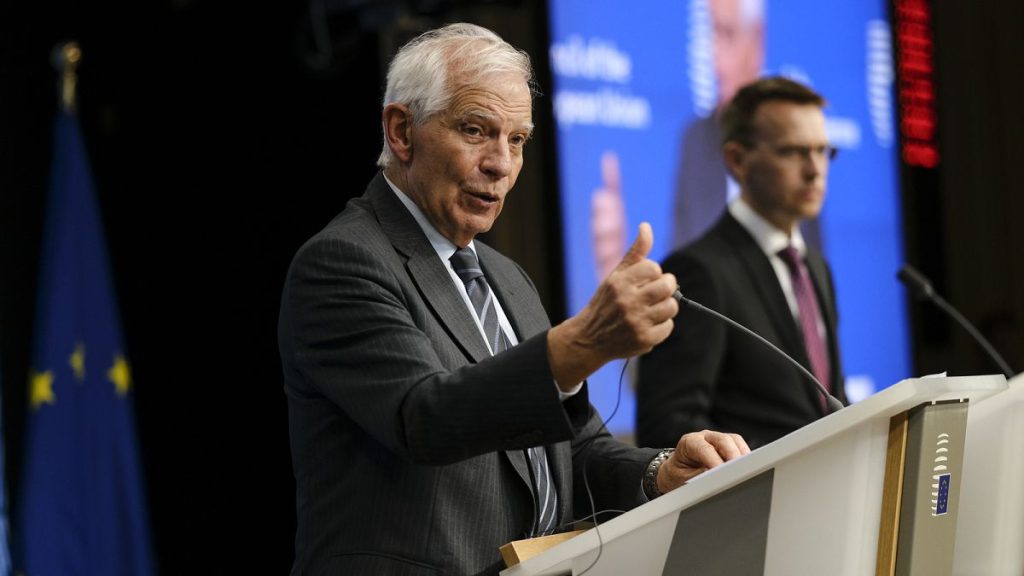The European Union has agreed to call for an Association Council with Israel to discuss the country’s compliance with human rights obligations under the EU-Israel trade deal. This decision was made in response to concerns over Israel’s military campaign in Gaza and potential violations of human rights and international law. The Association Agreement, established in 2000, is based on respect for human rights and democratic principles. Europe, as Israel’s main trading partner, sees this agreement as a way to pressure Netanyahu’s government to refrain from military activities in Gaza.
Despite prior support from human rights groups and the UN, the EU had failed to garner political backing for this move until now. The unanimous decision by EU foreign ministers comes in the wake of a ruling by the International Court of Justice ordering Israel to halt military actions in Rafah, which Israel has disregarded. An Israeli air strike on a camp of displaced Palestinians in Rafah resulted in numerous casualties, including women and children, prompting global condemnation. The IDF has opened an investigation into the incident, claiming to have targeted senior Hamas officials.
The decision to convene an Association Council with Israel has been seen as a strong signal of pressure by the EU. Some foreign ministers, such as Belgium’s Hadja Lahbib, believe that it is important to ensure that rules and values are respected by all, including partners like Israel. However, there are calls from ministers like Slovenia’s Tanja Fajon to impose sanctions on Israel for its violations of international law in Gaza. Fajon has condemned the attack on displaced Palestinians and called for a uniform and decisive response from the EU, including the possibility of sanctions.
The diplomatic tensions between Israel and certain EU member states have escalated, particularly since Ireland and Spain announced their formal recognition of the State of Palestine. Israel has expressed disapproval of this move and accused Spain of rewarding terrorism by recognizing Palestine. The Spanish foreign minister, Josep Borrell, has described the situation as unjustified and extreme verbal aggression. While there is currently no unanimous agreement within the EU to sanction Israel, Borrell suggested that the stance could change if Israel continues to ignore the ICJ’s ruling. The EU remains committed to upholding human rights and international law in its relations with Israel.
Overall, the EU’s decision to call for an Association Council with Israel reflects its concerns over human rights violations and military actions in Gaza. Despite previous challenges in garnering political support, the unanimous decision by EU foreign ministers demonstrates a collective effort to hold Israel accountable for its actions. The bloc’s top diplomat, Borrell, has emphasized the importance of respecting international humanitarian law and upholding democratic principles in relations with Israel. As tensions escalate between Israel and certain EU member states, the EU’s stance on potential sanctions against Israel may evolve if violations of the ICJ ruling persist.


